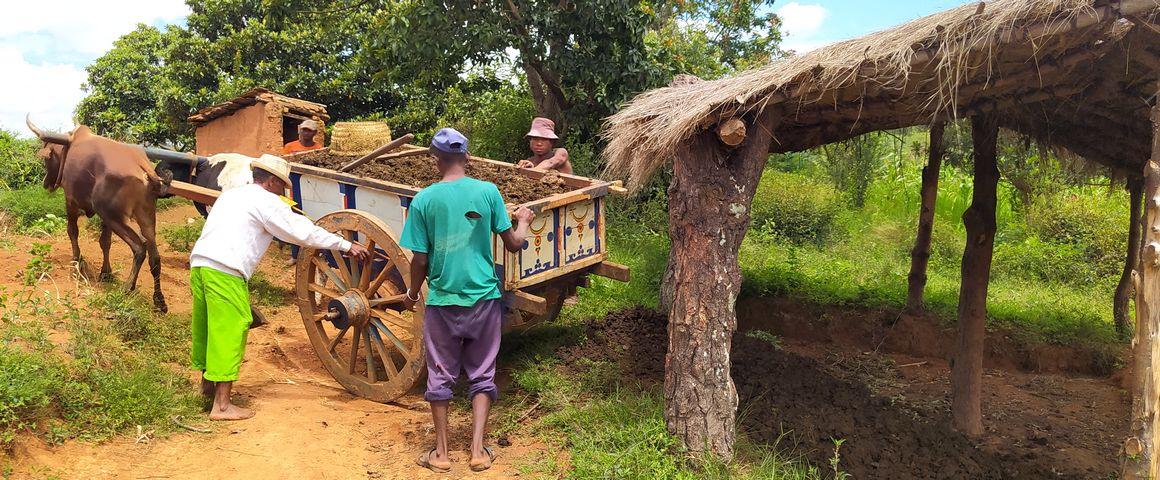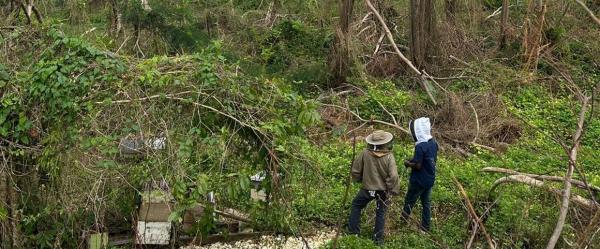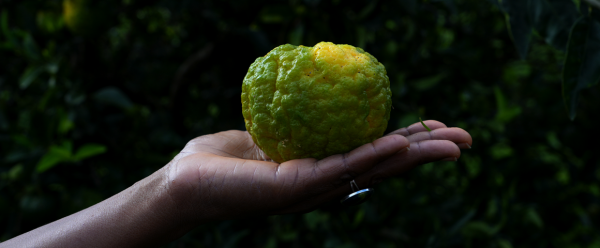Science at work 14 January 2026
- Home
- CIRAD news
- News
- Viability project: agroecological transition in Africa
Viability: the keys to an agroecological transition in Africa

Unloading manure at a composting site in Madagascar © T. Raharison, GSDM
Climate change, land and water resource degradation, biodiversity loss, and so on... farming systems in Africa face a range of challenges. To restore the environment and satisfy the food and economic requirements of a growing population, there is an urgent need for different ways of producing. However, while the scientific community now recognizes agroecology as an effective way of changing the agricultural paradigm, it is not easy to implement. In some places, there is not enough technical know-how, while in others, land is in short supply or there are not enough profitable markets. This is why the Viability project set out to assess the socioeconomic viability of agroecological practices in Africa.
The project, which is coordinated jointly by CIRAD and ICRAF and funded by the French Ministry for Europe and Foreign Affairs, is the first project to be implemented within the framework of the Agroecology Transformative Partnership Platform (TPP). The platform, launched by France and CGIAR in 2021, is intended to transform food systems, and to spearhead the agroecological transition.
Fuelling the agroecology debate
"In Africa, people are very sceptical about agroecology, and it is highly controversial", says project coordinator Nadine Andrieu. "For some, it is a step backwards that will not guarantee food security, unlike conventional agriculture." Firm evidence is needed to counter that scepticism. What does it take for agroecology to be cost-effective? How can we measure the socioeconomic value of the ecosystem services rendered? What sort of training do producers need? Viability hopes to answer all those questions, by means of a novel, ambitious field study.
Promising results
"Our preliminary results have confirmed that the wide range of agroecological practices (such as composting, water and soil conservation techniques, agroforestry and fodder legumes) generates many environmental benefits, by limiting erosion and improving soil fertility and water infiltration" Nadine Andrieu adds. "We have also observed the positive role of public incentive policies." The socioeconomic benefits mentioned by the stakeholders surveyed include improved household food security, job creation and increased income.
However, while agroecological practices have many advantages, some are highly labour-intensive. This is one of the main constraints demonstrated by case studies, along with the difficulty of accessing productive resources or knowledge.
Nine countries, twelve case studies
Twelve case studies, each covering between 100 and 300 farms where agroecology has been promoted over the past two decades, are under way in nine African countries (Burkina Faso, Ethiopia, Kenya, Madagascar, Mozambique, Senegal, Tanzania, Tunisia and Zimbabwe). The extent of the study will allow the project to analyse a wide range of farming practices and climate, socioeconomic and political situations.
The main task is to "build a common methodology capable of producing comparable results", Nadine Andrieu explains. In practical terms, those in charge of the survey question agroecology stakeholders (producers, researchers and technicians) to compile qualitative and quantitative data on the conditions in which agroecological production systems were set up, their successes and their failures. The vast resulting dataset will be analysed to draw generic or territory-specific conclusions.
Between now and 2022, the lessons drawn from the case studies will be converted into key messages and forwarded to agroecology stakeholders. The aim is to fuel their work to foster an agroecological transition. "By documenting the advantages and drawbacks of agroecology, we hope that donors and policymakers will have no excuse not to make informed decisions", Nadine Andrieu hopes.



























